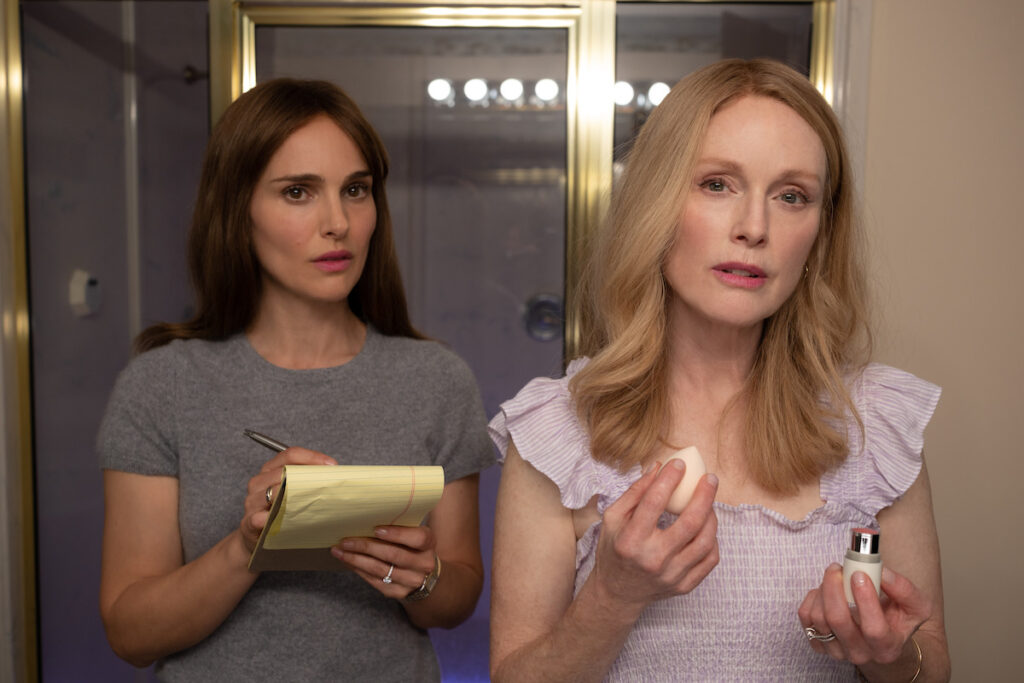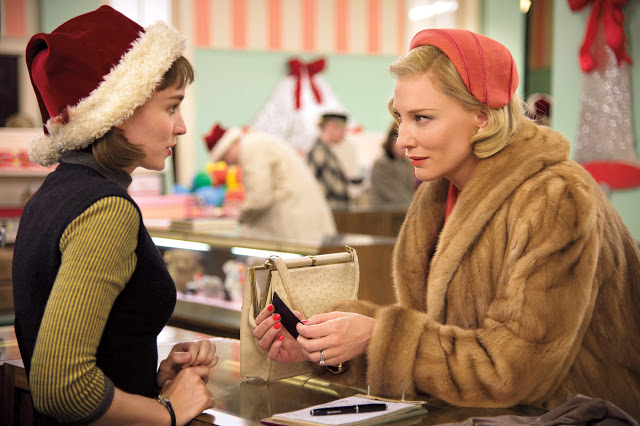May December: It’s a Generational Fling

When we first meet Gracie and Joe, the married couple who constitute two-thirds of the unstable triangle that makes up Todd Haynes’ May December, they seem to be living an enviable fantasy of domestic bliss. Hosting that most idyllic of pastimes, the backyard barbecue, they share a passing kiss before busying themselves with their duties; Joe (Charles Melton) gets to work on the grill, while Gracie (Julianne Moore) bustles in the kitchen. The weather is sunny, the guests are smiling, and the mood is relaxed. But then Gracie opens the refrigerator door, and the music swells ominously as she makes a cataclysmic discovery: “We don’t have enough hot dogs.”
This is a very funny scene, even as it telegraphs Haynes’ bold, borderline-perverse intentions. With this movie, he is taking the meager lives of three pitiful people and imbuing them with the sweep of classic melodrama. Yet he is also doing the opposite: tackling subject matter that is fundamentally vulgar and investing it with extraordinary grace and sensitivity. May December traffics in illicit affairs and tawdry desires, which it heightens with extravagant skill and unapologetic grandeur. But where its bones are theatrical, its heart is achingly sincere. Read More

